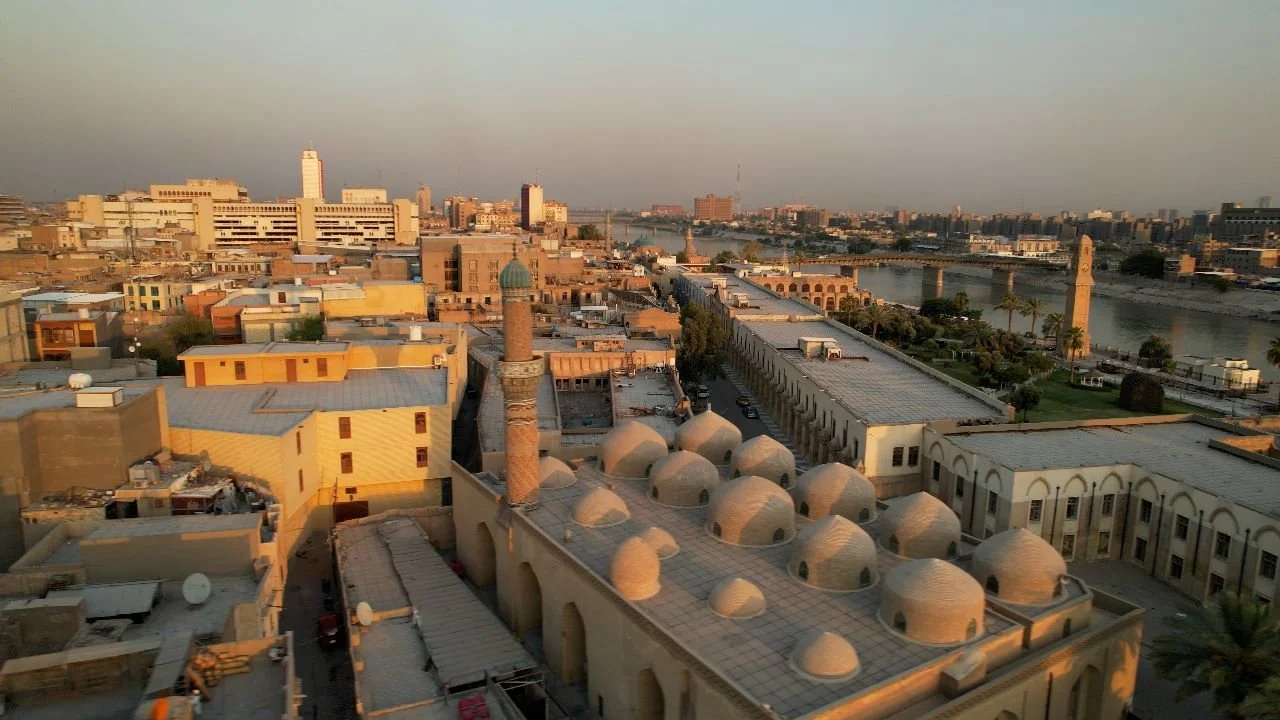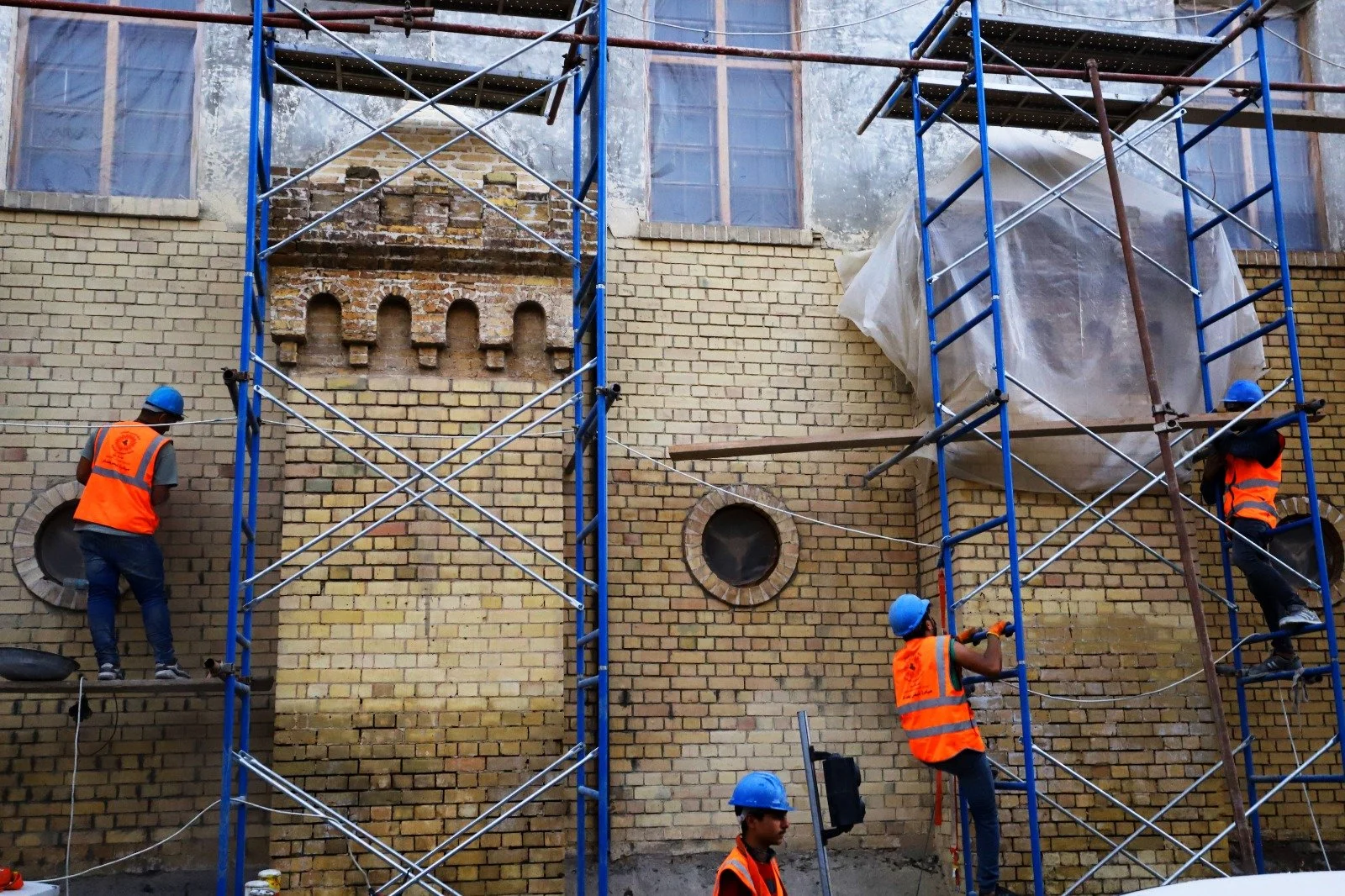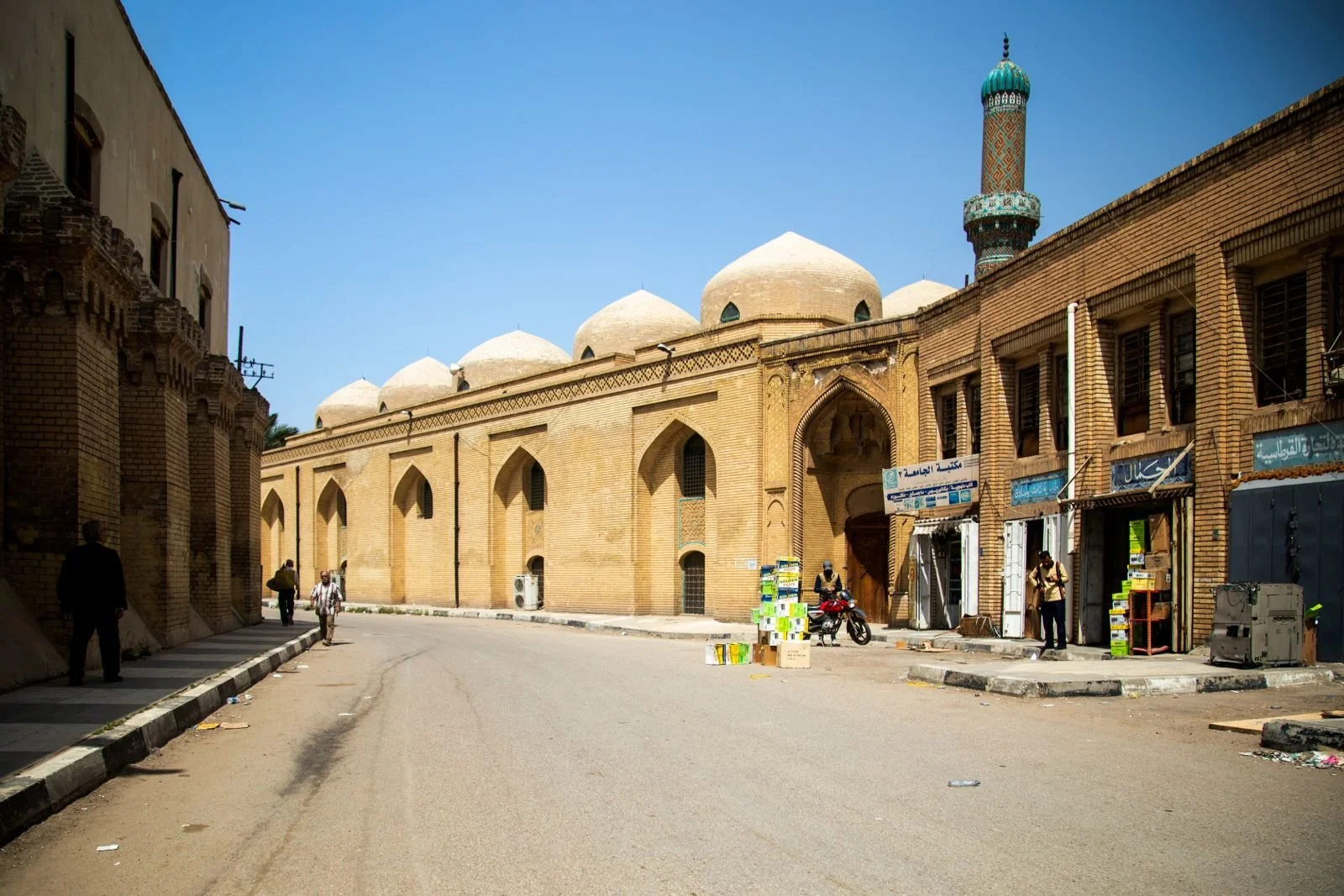Friday Morning Iraq Economic News Highlights 7-14-23
Friday Morning Iraq Economic News Highlights 7-14-23
A Legal Clarification Of The Extent To Which The Budget Can Be Applied After The Decision To Suspend Some Of Its Articles
Information/Baghdad.. Today, Friday, legal expert Ali Al-Tamimi explained the possibility of applying the tripartite federal budget after the Federal Court's decision to stop the implementation of some of its articles. Al-Tamimi told Al-Maalouma, that "the Federal Court issued its decision regarding stopping the implementation of some budget articles, as it suspended 6 articles until the final decision is issued regarding them, and it received the request for the state order for other materials out of the total of 12 articles.”
He added that "the six articles that were suspended by the Federal Court are no longer applicable, while Article 78 of the Constitution stipulates the implementation of the budget from the date of voting on it, and therefore the budget will be implemented except for the articles." that were suspended by the court.
And the legal expert stated: "It is expected that the court's decision regarding the 12 articles that were challenged will be issued within a month," pointing out that "the internal system of the Federal Court, especially Article 22, has determined the three presidencies , the ministries that are not organized in a region, the independent bodies, and the prime minister of the Kurdistan region that can challenge the budget within 30 days of its publication in the Official Gazette, however, the issuance of the state order to suspend the Implementation of some articles is not related to time ended 25 n LINK
With A Mathematical Process And In Numbers.. An Expert Reveals The Economic Feasibility Of Bartering Between Iraq And Iran
economy |Baghdad today – Baghdad Today, Friday, economic expert Nabil Al-Marsoumi revealed the economic feasibility of bartering between Iranian gas and Iraqi oil.
Al-Marsoumi said in a post he posted on Facebook, followed by “Baghdad Today”, that “bartering, or rather set-off, is usually between two parties, one of whom has a surplus of a commodity and the other suffers from a deficit, but Iran does not suffer from a deficit in the production of crude oil and black oil, but rather from restrictions America is dependent on its oil exports, and therefore it does not need Iraqi crude oil."
He explained that "Iraq's production of black oil in 2021 amounts to 335,000 barrels per day, rising in Iran to 384,000 barrels per day, while the demand for black oil in Iraq is 189,000 barrels per day, compared to 255,000 barrels per day in Iran, and therefore Iran has a surplus of oil." The black oil is 49,000 barrels per day, and therefore it does not need Iraqi black oil."
Al-Marsoumi continued, "Iraq, especially when it sells crude oil and black oil at international prices, as stated in the agreement, will be the biggest winner because it will be able to export its surplus oil production from the Kurdistan fields and the surplus of black oil to pay the Iranian gas import bill, while Iran will not be able to use crude oil and oil."
The lions are in domestic consumption because it is self-sufficient in them," noting that Iran "cannot re-export them because of the US sanctions on it, which raises doubts about the practical application of this spending between Iraq and Iran."
Earlier, the Iraqi Prime Minister, Muhammad Shia al-Sudani, announced that Iran would be bartering black oil in exchange for gas imported from it. LINK
To Confront US Sanctions... How Do The Iranians View The Iraqi Oil-Gas Barter?
Posted On2023-07-14 By Sotaliraq Tehran and Baghdad reached an agreement to barter Iranian gas for Iraqi black oil, to ensure the operation of Iraqi electricity production plants (Shutterstock)
Rasoul Al Hay 7/13/2023 Tehran- After marathon negotiations that lasted for several days, technical committees from Tehran and Baghdad reached an agreement to barter Iraqi black oil With Iranian gas, to ensure the operation of Iraqi electricity production plants on the one hand, and to confront the problem of US sanctions on Iran on the other hand.
A few days after Tehran reduced gas supplies to Baghdad due to its delay in paying the debts accumulated on it, Ihsan Yassin Al-Awadi, Director of the Office of the Iraqi Prime Minister, and the Iranian Ambassador to Baghdad, Muhammad Kazem Al Sadiq, signed the agreement to avoid financing problems due to the US sanctions imposed on Iran. .
Meanwhile, Iraqi Prime Minister Muhammad Shia al-Sudani announced - on Tuesday - that the barter agreement came "to end the problem of American approval of payments to Tehran," explaining - in a televised speech - that the US Treasury's measures obstructed the 2018 agreement, which includes a mechanism for providing humanitarian and food materials. To the Iranian side in exchange for the price of gas.
Tehran and Baghdad reached an agreement to barter Iranian gas for Iraqi black oil, to ensure the operation of Iraqi electricity production plants (Shutterstock) Rasoul Al Hay
Payment of all Iranian dues
Al-Sudani stressed that Baghdad had paid all its dues for Iranian gas amounting to 11 billion dollars, and deposited it in the account of Iranian companies, while the spokesman for the Iraqi Ministry of Electricity, Ahmed Musa, explained that the barter agreement secures Iran's access to gas dues by exchanging it for black oil.
This comes about a month after Washington agreed to Baghdad's request to release $3 billion in financial dues to Iran for its gas and electricity exports to Iraq. However, the barter agreement shows the blowing up of the previous agreement between the two countries in order for Tehran to import food and medicine through its released funds.
Iranian observers believe that the agreement helps the Iraqi side to overcome the current electricity crisis, but it does not benefit the Iranian economy, which is besieged by US sanctions.
Criticism and pessimism
In the context, the economist Bahman Arman finds it very difficult to implement the agreement in its entirety, because the process of laying pipelines between the two countries is useless, and transporting very large quantities of Iraqi oil by truck to Iran will take a long time.
Speaking to Al-Jazeera Net, Arman recalls the threat of Iranian oil shipments to be arrested on the high seas due to US sanctions imposed on Iranian oil exports, stressing that Tehran's oil production exceeds its exports, which flow to buyers at prices lower than global markets. Tehran also suffers from the accumulation of huge quantities of oil, and it is unreasonable to import Iraqi oil to stockpile it inside the country.
The Indonesian Coast Guard announced - on Tuesday evening - that it had seized a tanker flying the Iranian flag. On suspicion of illegally transporting oil, explaining that he had detained the ship “Arman 114”, which was carrying 272,569 tons of light crude oil, after it was seen transporting oil without a permit to the ship “Stenos” that flies the flag of Cameroon in the Natuna Sea in the north of the country.
The need to lift US sanctions
Arman believed that the agreement aims to reassure Iranian public opinion regarding Tehran's receipt of its dues for gas exports, pending a practical solution through which Iran can return its money or pay the dues owed to it as a result of importing medicine and basic commodities.
The Iranian economist believes that his country has not ratified the laws of the Financial Action Task Force (FATF) related to combating money laundering and terrorist financing as a major dilemma that is constraining its economy, stressing that Tehran's efforts to strengthen its relations with neighboring countries will not work unless the US sanctions are lifted and Tehran is removed from the blacklist.
A calculated step
for his part, Iranian economist Saeed Laylaz attributes the reason for Tehran's acceptance of bartering its gas for Iraqi oil to its keenness to help the Iraqi government provide electricity service to its people, describing the agreement as the ideal solution in light of Washington's lack of agreement to transfer funds to Iran.
And he believed - in his interview with Al-Jazeera Net - that Tehran could employ the oil imported from Iraq in order to export it to another country, or refine it in Iranian refineries near the Iraqi border, or import it in the form of oil derivatives such as gasoline and diesel.
He concluded that the exchange of Iraqi oil for Iranian gas is a positive step to overcome the emerging problems in the political and economic relations between Tehran and Baghdad, stressing that the Iranian economy has become too large to be affected negatively or positively by $11 billion.
Source: Al Jazeera LINK
Al-Amiri: It Is Shameful For Us To Be Controlled By An Employee Of The US Treasury
Posted On 2023-07-14 By Sotaliraq On Thursday, the head of the Al-Fatah Alliance, Hadi al-Amiri, called for a unified stance towards the US treasury measures.
And Al-Amiri said in a speech at the memorial ceremony, that: “It is shameful for us to be controlled by an employee of the American treasury.” And he added, “I call on the political forces to take a unified position for the independence of Iraq.” LINK
A Specialist Details The Economic Feasibility Of Bartering Iranian Gas For Iraqi Oil
2023-07-14 | 2,907 views Today, Friday, economic expert Nabil Al-Marsoumi revealed the economic feasibility of bartering Iranian gas for Iraqi oil.
Al-Marsoumi said in a post, followed by Al-Sumaria News, that "usually barter or rather set-off is between two parties, one of whom has a surplus of a commodity and the other suffers from a deficit," adding, "However, Iran does not suffer from a deficit in the production of crude oil and black oil, but rather from restrictions." America is dependent on its oil exports, and therefore it does not need Iraqi crude oil."
He added, "Iraq's production of black oil in 2021 amounts to 335,000 barrels per day, rising in Iran to 384,000 barrels per day, while the demand for black oil in Iraq is 189,000 barrels per day, compared to 255,000 barrels per day in Iran. Therefore, Iran has a surplus of oil." Black oil amounts to 49,000 barrels per day, and therefore it does not need Iraqi black oil."
And Al-Marsoumi continued, "On this, Iraq will be, especially when it sells crude oil and black oil at international prices, as stated in the agreement. It will be the biggest winner because it will be able to export its surplus oil production from the Kurdistan fields and the surplus of black oil to pay the Iranian gas import bill, while Iran will not be able to use it."
Crude oil and black oil are used in domestic consumption because it is self-sufficient, and we cannot re-export them due to US sanctions, which raises doubts about the practical application of this spending between Iraq and Iran. LINK
Oil For Gas".. Barter Or Maneuver To Open The US Dollar Window Between Iraq And Iran?
2023-07-13 Shafaq News/ Prime Minister Muhammad Shia’a Al-Sudani’s announcement of an Iraqi-Iranian agreement to solve the electricity crisis by exchanging gas for black oil raised many questions among specialists, including: Did America give Iraq the green light, what is the price according to which it will be determined, and the method by which it will be determined? It will transport oil.
"Vague" Agreement
Oil expert Hamza Al-Jawahiri said in an interview with Shafaq News agency; "The announcement of the exchange of crude oil and black oil for Iranian gas raises ambiguity, as Iran has crude oil that it cannot export because of the sanctions, then it comes to take crude oil from Iraq, in addition to that crude oil is accounted for by OPEC and when it is given to Iran, it will be deducted from Iraq's share." .
He continued, "Black oil has a platform in Dubai and has known international prices. America may not agree to such a barter because Iran takes oil money, meaning dollars, and whether it took it by selling black oil or transferring it is the same thing."
He stressed that "it is not known to him that the agreement will pass because this agreement has obstacles because it is not supposed to include crude oil," hoping that "the agreement will be included so that we can pay to Iran."
American Veto
Economist Nabil Al-Marsoumi said in an interview with Shafaq News agency; "It is in the interest of Iraq that Iraq exchanges black oil for gas, and it can use Kurdistan's oil in this context and load it in tanks."
He added, "The United States allowed Iraq to pay Iranian gas and electricity purchases in Iraqi dinars or a third currency, or by importing basic commodities for the Iranian people," noting that "it is not excluded that Iran will resort to selling and exporting black oil and obtaining dollars, and it is also not excluded that there will be a veto." American in agreement.
I lingered Iraqi
The economist, Haider Al-Moussawi, said in an interview with Shafaq News agency; That "the black oil-for-gas proposal was 3 months ago, and the government waited for fear of the American rejection, and after the peak of demand for processing hours, the government went to approve the proposal."
Al-Moussawi described this agreement as "a sound step, noting that domestic gas, even if Total finishes investing in gas, will not fill the need, which means the continuation of imports."
"Barter is the most important solution"
A spokesman for the Iraqi Oil Ministry, Asim Jihad, says; "The agreement with Iran to barter Iranian gas for Iraqi black oil represents one of the most important solutions that the government and the Council of Ministers resorted to to pay dues for the supplied gas."
He added, "The agreement will ensure the smooth flow of the supplied gas and end the previous stumbling block due to the US sanctions imposed on Iran, according to which it was agreed on the supply and pricing mechanism adopted in the oil markets."
Constant Need
Former Oil Minister Ihsan Abdul-Jabbar said in an interview with Shafaq News agency, "All of our gas projects, including Total's projects, will have 4,000 cubic meters of gas production, and we have 33 gigawatt power stations, so we need 7,000 cubic meters in the summer."
He added, "The four thousand pumps producing gas will be closed for a period of 9 months, and 3 months remain in need of gas, which must be imported."
On July 10, Prime Minister Muhammad Shia al-Sudani announced that an Iraqi-Iranian agreement had been reached to solve the electricity crisis by exchanging gas for black oil, and said that the US Treasury's measures prevented Baghdad from paying the money owed to Tehran.
Several days ago, Iraq witnessed a noticeable decline in the supply of electricity due to the decrease in the supply of Iranian gas feeding power plants.
This comes at a time when the governing coordinating framework in Iraq held the US administration responsible for the decline in the provision of electric power.
Iraq relies on Iranian gas to operate electric power plants, while the Ministry of Electricity estimated that the period of Iraq's need for Iranian gas ranges between 5-10 years.
According to preliminary estimates of the Ministry of Oil, Iraq has reserves estimated at 132 trillion cubic feet of gas, as about 70% of Iraqi gas is gas associated with oil extraction for treatment, and Iraq ranks 11th among the world's countries rich in natural gas. LINK
Pictures.. Iraqi Paws Restore The "Pulse" To The Heart Of Baghdad
Reconstruction and building Economy News – Baghdad Today, Thursday, the Association of Iraqi Private Banks announced the launch of the "Baghdad Pulse" initiative to rehabilitate the old areas of Baghdad.
And a statement by the association stated: “The Baghdad Pulse initiative was launched to rehabilitate the old city of Baghdad, under the auspices of Prime Minister Muhammad Shia’a al-Sudani, and the supervision of the Baghdad Municipality and the Association of Iraqi Private Banks, with the participation of the National Investment Commission, the General Authority for Antiquities and Heritage, the Baghdad Governorate and a number of ministries and other supporting institutions, and funded and implemented by Before the Community Initiatives Fund "Tamkeen", which is funded by Iraqi private banks and supported by the Central Bank of Iraq.
The statement indicated, "The current phase of the initiative includes the rehabilitation of the Serail axis towards the Shabandar Café, the police station building, and Al-Safir Square."
The statement added, "The initiative aims to revive the old areas of Baghdad and make it an outlet for the people and a point of attraction for Arab and foreign tourists, due to the great history that Baghdad enjoys."
The statement continued, "This initiative is a continuation of the Al-Mutanabi Street rehabilitation project, which was funded by the Tamkeen Fund and implemented by the Fund's Engineering Department, in cooperation with the Baghdad Municipality."
Views 147 Added 07/13/2023 - https://economy-news.net/content.php?id=35149


